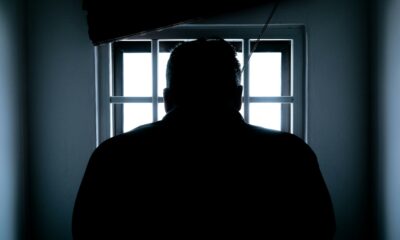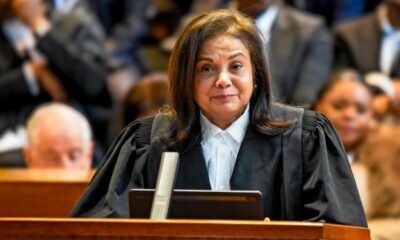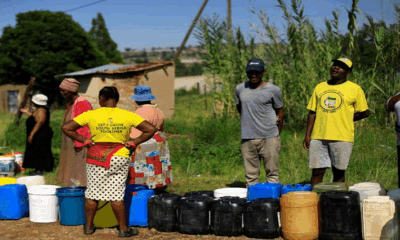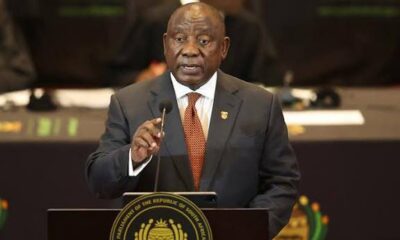News
Inside the Chauke Inquiry: A Battle Over Prosecutorial Integrity and South Africa’s Justice Reputation
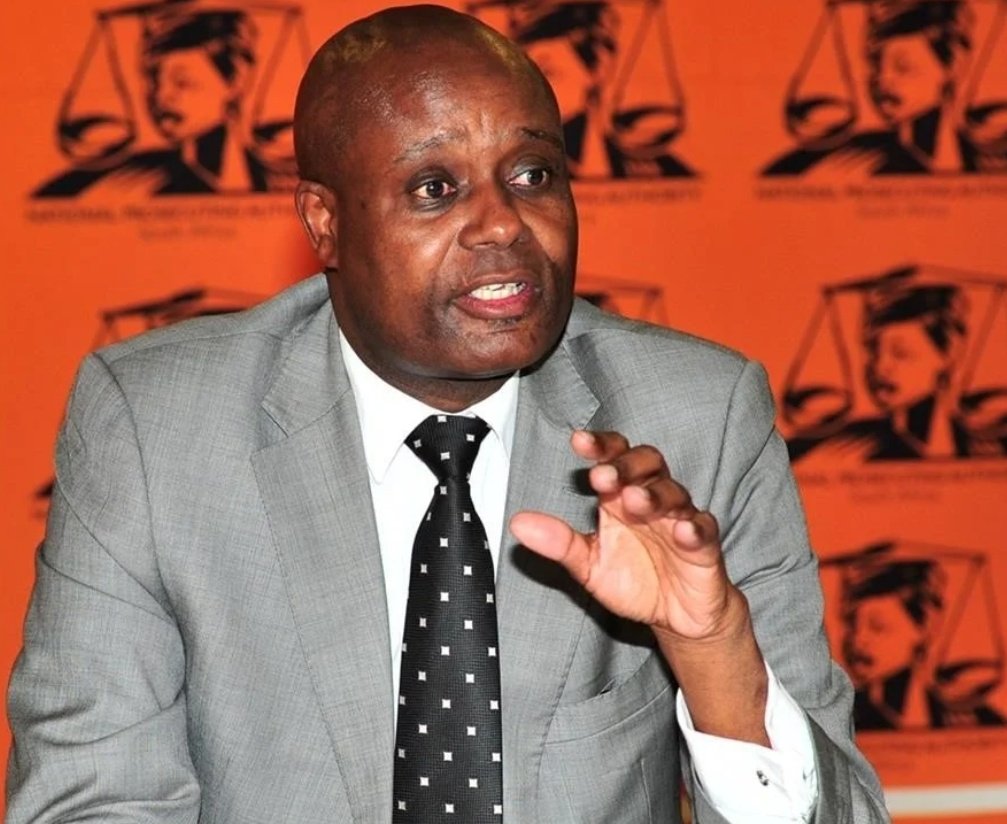
Inside the Chauke Inquiry: A Battle Over Prosecutorial Integrity and South Africa’s Justice Reputation
Judge Bess Nkabinde challenges the framing of allegations as the NPA defends its call for the inquiry
The long-running question of whether South Africa’s justice system still commands public trust took centre stage again on Monday, this time inside the inquiry examining the fitness of suspended Johannesburg Director of Public Prosecutions, Advocate Andrew Chauke.
And it didn’t take long for the hearing to ignite.
Retired Constitutional Court Judge Bess Nkabinde, who is chairing the proceedings, pointedly asked whether President Cyril Ramaphosa’s terms of reference for the inquiry “read more like an indictment in a criminal prosecution” than an investigative mandate.
Sitting across from her was National Prosecuting Authority (NPA) head Advocate Shamila Batohi, who replied with a measured, “Broadly, but not limited to.”
For an inquiry meant to restore confidence in the NPA, the exchange summed up the delicate tightrope South Africa is walking: rooting out internal misconduct while defending the integrity of the prosecutorial system itself.
A Fourth Day of Testimony and Growing Tension
Monday marked Batohi’s fourth consecutive day on the stand.
Her evidence has been central to this inquiry, not only because she pushed for it, but because it deals directly with her predecessor’s internal battles and the reputational damage inflicted on the NPA.
At the heart of the case are allegations that Chauke:
-
protected politically connected individuals
-
mishandled high-profile prosecutions
-
insisted on pursuing racketeering charges without evidence
-
acted outside his jurisdiction
-
and contributed to drawn-out, expensive litigation
According to Batohi, Chauke’s decisions didn’t just weaken casesthey harmed the NPA’s credibility and cost taxpayers through years of legal battles and adverse cost orders.
Two Major Complaints: Booysen vs Cato Manor, and Mdluli Murder Case
Evidence leader Advocate David Mohlamonyane laid out the two broad complaints:
1. The Racketeering Charges Against Major-General Johan Booysen and the Cato Manor Unit
The allegation?
Chauke allegedly pushed aggressively for racketeering charges against Booysen and members of the Cato Manor Uniteven when, according to Batohi’s evidence, there was no evidence linking them.
Most controversially, Chauke allegedly involved himself in KwaZulu-Natal’s prosecution effortseven though his jurisdiction is South Gauteng.
Chauke’s explanation?
He insists he merely co-ordinated on behalf of then acting NDPP Nomgcobo Jiba, and that he never took the prosecutorial decisions himself.
2. The Failure to Act on Charges Against Richard Mdluli
The second complaint relates to Chauke’s alleged failure to proceed with charges against former crime intelligence boss Lt-General Richard Mdluli, including allegations tied to the murder of Tefo Ramogibe.
Again, years of litigation followeddriven largely by civil society, public interest groups, and attempts to force prosecutorial action.
Judge Nkabinde Pushes Back: “Show Us the Misconduct”
Throughout the proceedings, Judge Nkabinde was firm and persistent.
She repeatedly asked how Batohi’s testimony aligned with the terms of reference, pressing for clarity on whether Chauke’s behaviour truly amounted to unlawful conduct or merely disputes in strategy and judgment.
“Up to now, it’s not clear in reference to terms of reference that seems to suggest Advocate Chauke misbehaved,”
Judge Bess Nkabinde
It was a reminder that an inquiry is not a courtroomand the panel needs evidence of misconduct, not simply organisational disagreements.
When asked what prompted her to approach the president to suspend Chauke, Batohi said it would “become clear in due course,” indicating that witnesses still to come will build the full picture of overreach.
South Africa’s Broader Context: A Judiciary Under Pressure
For many South Africans watching the inquiry unfold, the details feel familiar.
Over the last decade, public trust in law enforcementfrom SAPS to the NPAhas weathered heavy blows. State capture revelations, political interference, abandoned prosecutions, and high-profile collapses have cultivated frustration.
On social media, reactions to the Chauke inquiry range from:
-
Skepticism:
“Will anything actually come of this? We’ve heard stories for years.” -
Relief:
“At least someone is finally being held accountable.” -
Outrage:
“Why did it take so long to investigate decisions that cost the state millions?”
The inquiry is thus not just about Chauke, it is a test for Batohi, for the NPA, and for a justice system still rebuilding its integrity after the state capture era.
Chauke: “The Allegations Are Vague and Embarrassing”
Chauke’s legal team argues that the accusations against him are nebulous, lack specificity, and do not demonstrate misconduct.
He maintains he:
-
did not authorise the racketeering certificates
-
did not exceed his authority
-
acted only as a co-ordinator when instructed
-
and supported decisions made by more senior officials
Whether this defence holds will depend on the evidence still to come.
A System on Trial, Not Just a Prosecutor
What makes this inquiry compelling is not just the question of Chauke’s fitness for officeit is what the process says about the NPA’s culture, its internal checks, and how far it has come in cleaning up the legacy of politicised decision-making.
With Batohi spearheading a new era of accountability, the stakes are high.
If the inquiry confirms wrongdoing, it will validate her push for reform.
If not, it could expose deep fractures within the prosecutorial leadership.
Either way, the outcome will have ripple effects for how South Africans interpret justice, independence, and integrity within the NPA.
{Source: IOL}
Follow Joburg ETC on Facebook, Twitter , TikTok and Instagram
For more News in Johannesburg, visit joburgetc.com

